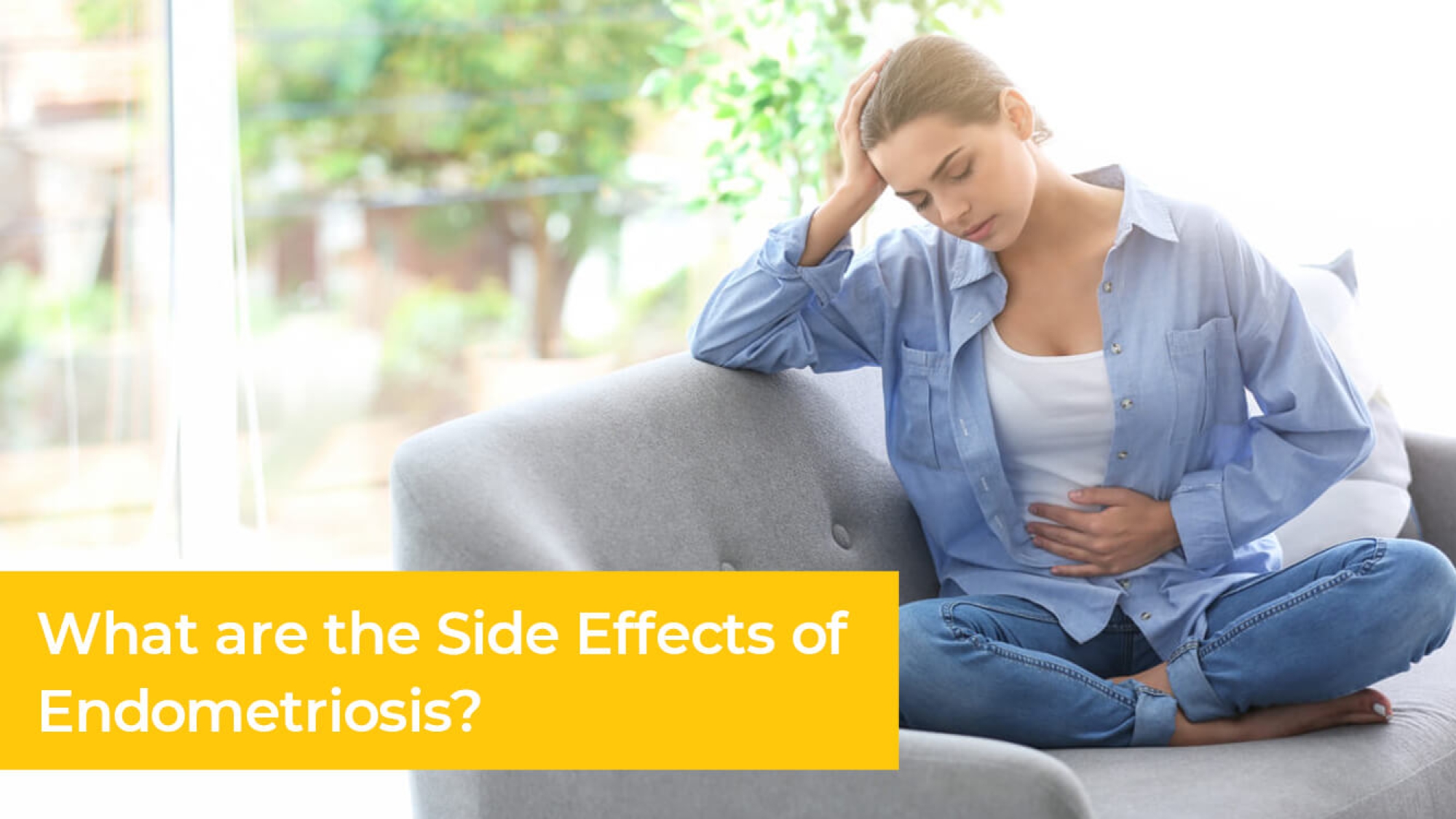What is Endometriosis?
Endometriosis is a complex disorder in which tissues that normally form inside the uterus, are found outside it. In most cases, they are found over the fallopian tubes, ovaries, and the intestines. This leads to severe abdominal pain, especially during menstruation as the tissues shed blood similar to the endometrial lining and there is no way for the blood to exit the body.
Endometriosis affects women of all ages but is more common among women between 15 to 44 years of age. It may be more common in women of childbearing age as endometriosis directly affects the normal functioning of the uterus and reproductive organ. According to studies, around 50% of women who suffer from infertility have endometriosis, and 30-50% of women who have endometriosis usually suffer from infertility.
Some of the basic signs and symptoms of Endometriosis are as follows:
- Heavy and painful periods that last longer than usual
- Extreme lower back pains and cramps
- Pain and/or bleeding during excretion
- Pain during or after intercourse
- Bleeding in between periods
- Infertility
Since endometriosis directly affects the normal functioning of the uterus, it has a direct impact on fertility.
Other side effects of endometriosis
Over time, endometriosis has shown to be associated with many abnormalities and imbalances of the body such as headaches, weight gain, mental concerns, fatigue, and inflammation. The other unusual symptoms of endometriosis also include chronic and long-term diseases such as cancer, autoimmune diseases, and cardiovascular diseases. We have further explained these other symptoms of endometriosis in detail for better understanding.
Short term side effects:
- Endometriosis and headaches:
One of the common side effects of endometriosis is migraine headaches, dizziness, nausea, and vomiting during menstruation. Many studies suggest that endometriosis and headaches are linked, as there is a significant increase in prostaglandin production in women who suffer from endometriosis. This is believed to cause migraine headaches. Most over the counter medications can temporarily relieve these headaches. - Weight gain:
Endometriosis is associated with hormonal imbalances that cause other symptoms of endometriosis like bloating, breast tenderness/swelling, and weight gain. Many women show signs of estrogen dominance, a condition that causes high levels of estrogen. Along with hormonal imbalances, certain medications prescribed for endometriosis may also result in weight gain as a side effect. - Mental stress, anxiety and depression with endometriosis:
Being a painful and complex disorder, endometriosis is more likely to cause a negative cycle in mental health. Due to infertility and severe pain during menstruation and sexual intercourse, showing signs of anxiety, anger, stress and depression with endometriosis is not an unusual symptom of endometriosis. These emotions can also further contribute to infertility.
Long-term side effects:
- Cancer:
“Can Endometriosis cause cancer?” While endometriosis is benign in nature, it does show some characteristics of malignant tumors such as abnormal tissue growth and invasion of distant organs. For this reason, many women with endometriosis may be at a higher risk of developing ovarian cancer. In some rare cases, another type of cancer called the endometriosis-associated adenocarcinoma may also occur in women with endometriosis.
That being said, while 1 out of 100 women in the general female population is likely to get ovarian cancer, 2 out of 100 women with endometriosis are prone to getting ovarian cancer. This means that the actual probability of getting ovarian cancer due to endometriosis is still relatively low.
- Autoimmune Diseases:
Although there is no explanation to the connection between endometriosis and autoimmune diseases, one of the other symptoms of endometriosis is developing autoimmune disorders.
An autoimmune disorder is when the body’s own immune system attacks and causes damage to its own tissue. While endometriosis may not by itself be an autoimmune disease, it does run the potential risk of other autoimmune disorders like Lupus, Sjögren’s syndrome, rheumatoid arthritis, inflammatory bowel diseases, and coeliac disease. Since the actual cause of endometriosis is still unknown, researchers suggest that women with endometriosis may have abnormal immune system responses which contribute to the said autoimmune diseases.
Another possible link between endometriosis and autoimmune diseases is the presence of inflammation in both disorders. - Cardiovascular diseases:
According to recent studies, women who are 40 years or younger, with endometriosis, are at a higher risk of developing heart diseases and cardiovascular disorders. The studies also suggest that women with endometriosis have a 52% chance of heart attack, a 91% chance of getting chest pains, and a 35% chance of undergoing heart surgery when compared to women without the condition. This is likely to be caused by the inflammation and the high levels of “bad” cholesterol in women with endometriosis.
Furthermore, another unusual symptom of endometriosis caused by inflammation is hypercholesterolemia or increased levels of cholesterol which could also lead to possible cardiovascular diseases.
Therefore, the side effects of endometriosis are not only confined to fertility but can also pose a threat to life in the long run. If you or anyone you know shows the first signs of irregularities in menstruation along with unexplained headaches and severe abdominal pain, it is best to consult a doctor at the earliest possible to avoid further damage to distant tissues and organs.
